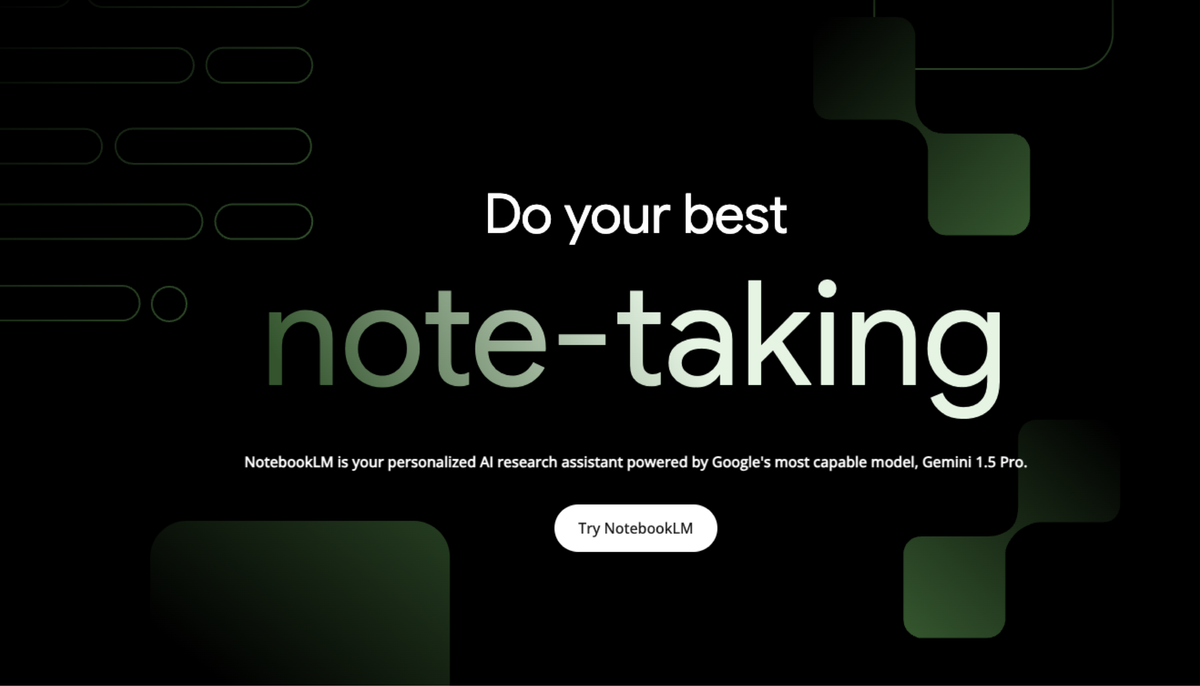At first glance, Google‘s new NotebookLM looks like just another generic AI application. For those not in the know, it’s a free service where you can upload a variety of media, and query this content using natural language, rather like using ChatGPT to summarize a business report. So far so ho-hum, right? Wrong. This is where most people miss the really incredible value this tool will bring to the future. I call it ‘unlocked information’.
The problem is the world is awash with data. So much data. It’s coming at us from everywhere. The web, YouTube, television and radio, our phones. We’re literally drowning in the stuff. And nowhere more so than in the scientific research field.
There are thousands of new scientific discoveries happening every single day, all of which have some sort of research paper or extra information attached to them.
But how can we mere mortals find out about all this progress? Even if we know where to look, the information that’s out there will generally stump the layperson because of dense science, complex math or deeply confusing concepts. That’s where NotebookLM comes into play.
Is NotebookLM worth the hype?
The beauty of NotebookLM is you can throw all sorts of information into the box – videos, audio, research papers, newspaper articles, even links to transcripts of TV programs. The AI will then ‘read’ the material, translate and make sense of it, and spit it back out in the form of a 5 to 10-minute podcast featuring two chirpy personalities.
It’s hard to explain how useful and compelling this can be. I recently gave my wife the link to the Google product and she immediately dropped in some information on photobiomodulation, an incredibly niche offshoot of functional medicine that is slowly gaining ground as a pathway to well-being. Within 10 minutes she had an informative, and most importantly, ‘interesting’ podcast she could listen to on her phone to get an idea of what the science was about, and whether it was important to know more about the subject.
Why should 90% of the world’s population be excluded from learning about their world and things that matter, just because they don’t have the patience or desire to wade through treacle?
Now she could have gained the same knowledge by going through the paper itself in detail, assuming she could understand all the medical terminology and jargon, but it would have forced her to devote a fair amount of time and effort to something that may have turned out to be a dead end. By delivering the information via two people chatting around a ‘virtual desk’, it suddenly became so much more accessible.
Of course, this sort of AI tool is not fully formed right now, but this is just the beginning. It’s not hard to imagine a near-distant future where we can all access important and meaningful information in a way that is not dry and academic, but which comes alive at the touch of a button.
It’s starting with audio podcasts, but soon it will be able to generate human-like AI personalities, which, like newsreaders and documentary presenters, will deliver personalized video infotainment-on-demand in ways that make it fun to learn, not a drag. Why should 90% of the world’s population be excluded from learning about their world and things that matter, just because they don’t have the patience or desire to wade through treacle?
And in case anyone things it’s all about lofty, esoteric information only, just consider a world where we can do a search on a recipe or a DIY repair procedure, and instead of watching a canned YouTube video or a static web page created two years ago, we will receive a personalized response built around what the AI already knows about our needs and environment.
How much more effective for it to know you’re lactose intolerant, or you don’t like salt when delivering a dinner recipe for an upcoming birthday treat? This is just the tip of the iceberg, but it should be no surprise that it’s search king Google leading the way with this sort of transformative tech. There’s a reason podcasts are booming right now, and it’s because they are entertaining as well as informative. It’s like eavesdropping on a chat over the garden fence, we get involved whether we want to or not.

For the doubters out there, I offer a simple challenge. Think of some interest you have where you’d like to learn more without much effort. It can be anything from cooking to rocket science. Then do a quick search to locate some scientific or other relevant information on the subject. It can be a video, audio, PDF file or even website URL. Then go to notebooklm.google.com and upload your source data and press the Generate button on the podcast tab. It’s kind of hidden, but if you look hard enough you’ll find it.
Once the audio generation has completed in around 5 minutes or less, listen to the results with an open mind. Don’t just rate it now – yes the voices can be annoying, and the delivery is also sometimes a bit too chippy – but consider what it might be like to have that kind of search access in every aspect of your life. Not just audio either, but video, chat, on the phone, everywhere. It’s now pretty clear that ChatGPT was just the bare minimum tech out of the gate. Not fully formed, and not even a fraction of what we’ve got coming.
If you want to know what the future looks like, Notebook LM is a great signpost on how this new AI age will integrate with all of our lives, every day, all the time.

